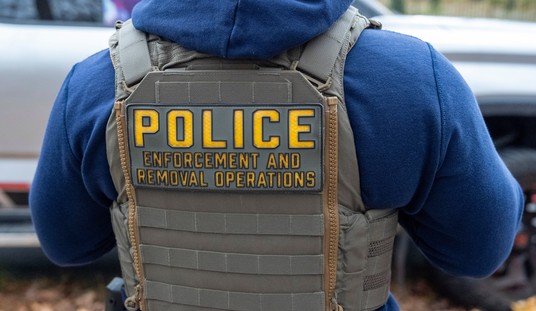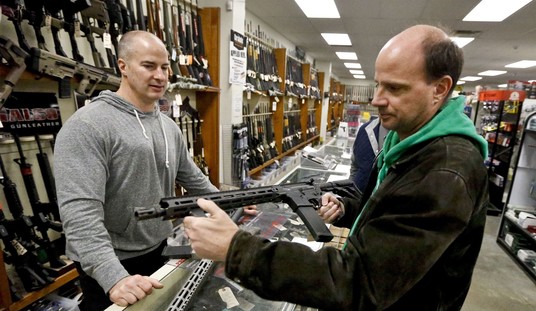Anti-gun groups are hyperventilating (and hyperbolic) over Joe Biden’s announced executive actions on firearms, with Brady’s Kris Brown declaring that the new edicts will “go a long way in preventing tragedies” and Everytown president John Feinblatt calling the actions “a home run for public safety.”
There’s little of real substance in Biden’s announced orders, but they did provide a platform for Biden to once again pontificate about the supposed need to ban commonly-owned firearms that are uncommon when it comes to violent crime. Speaking in Monterey Park, California on Wednesday, Biden used his new executive actions to once again call on Congress to pass an “assault weapons” ban; an idea that is going nowhere on Capitol Hill and a policy that (along with every other California gun control law on the books) failed to prevent the mass shootings in Monterey Park over the Lunar New Year holiday.
But what exactly do these new executive actions do, and how would they impact violent criminals or potential mass murderers? The most substantive order from Biden has to do with those “in the business of selling firearms,” but even though the administration has billed the order as something “as close to universal background checks as possible without additional legislation,” the reality is that all federally licensed firearms retailers are already required to put all potential buyers through a NICS check. Biden’s order directs the Attorney General to clarify “as appropriate, the statutory definition of who is ‘engaged in the business’ of dealing in firearms, as updated by the Bipartisan Safer Communities Act,” but the BSCA is already pretty clear on how that term is defined; namely, they have to be selling firearms to “predominantly earn a profit”. Here’s what the amended section of the Gun Control Act looks like after the BSCA was signed into law:
[“Engaged in the business,”] as applied to a dealer in firearms, as defined in section 921(a)(11)(A), [means] a person who devotes time, attention, and labor to dealing in firearms as a regular course of trade or business to predominantly earn a profit through the repetitive purchase and resale of firearms, but such term shall not include a person who makes occasional sales, exchanges, or purchases of firearms for the enhancement of a personal collection or for a hobby, or who sells all or part of his collection of firearms.
Does the new language open the door for Merrick Garland to go after gun owners who sell a firearm or two from their personal collection? Absolutely not. The law still requires both the repetitive purchase and resale of firearms in order to be considered “engaged in the business” of gun sales, so Biden’s boast that this is basically universal background checks by another name is absurd… or at least it would be if he and Garland haven’t already proven willing to flagrantly violate the Gun Control Act’s limitations on government action with the ATF’s rules on unfinished frames and receivers and pistol-stabilizing braces. Biden may try to use this executive action to do an end run around the GCA, but if that is the case there’s good reason to believe that courts will not look kindly on the ATF clearly disregarding the definition of “engaged in the business” to expand the use of background checks.
In another action, Biden is “encouraging” the Federal Trade Commission to “issue a public report analyzing how gun manufacturers market firearms to minors and how such manufacturers market firearms to all civilians,” but he doesn’t have the authority to compel the FTC to conduct any sort of study or to issue a report. With three of the four FTC members (including its chair) Democratic appointees I wouldn’t be surprised to see commissioners comply with Biden’s request, but I doubt that their analysis would be anything but a partisan attack on gun makers. The National Shooting Sports Foundation has panned this as well, calling it an attempt to “squelch the First Amendment rights of firearm businesses” and definitively stating that the industry “markets firearms only to those who are legally able to possess them.”
I’m also a little concerned with what might come out of Biden’s directive for the Department of Defense to “develop and implement principles to further firearm and public safety practices through Department of Defense acquisition of firearms, consistent with applicable law.” It’s easy to see what Biden’s aiming at here; for the DoD to require all potential contractors to abide by various gun control conditions, even if they’re not required by Congress. Want to bid on an Army contract? Sure thing, but only those gun companies that don’t sell “assault weapons” to civilians are allowed to submit proposals. That definitely has the potential for mischief, and if Democrats had complete control of Congress I’d be deeply concerned about the impacts of Biden’s order. With Republicans holding the Defense Department’s pursestrings in the House, however, GOP lawmakers could and should threaten to yank the DoD’s funding for small arms if it abandons its mission of protecting the country in favor of becoming gun control lobbyists.
Most of Biden’s orders are simply just “demands” to comply with existing law, and several of them aren’t really “orders” at all; mere suggestions or directions for members of his administration to look busy ; “directing members of his Cabinet to encourage effective use of extreme risk protection orders”, for example, or “directing the Attorney General to help Congress modernize and make permanent the Undetectable Firearms Act of 1988.”
If this is what gun control activists consider a “home run,” they’ve dramatically lowered their expectations. That wouldn’t be a bad thing at all, but I suspect that the praise of Feinblatt and others is more an attempt to spin Biden’s latest excuse to call for a gun ban into some sort of substantive policy victory than any real recognition that their anti-gun efforts are failing.









